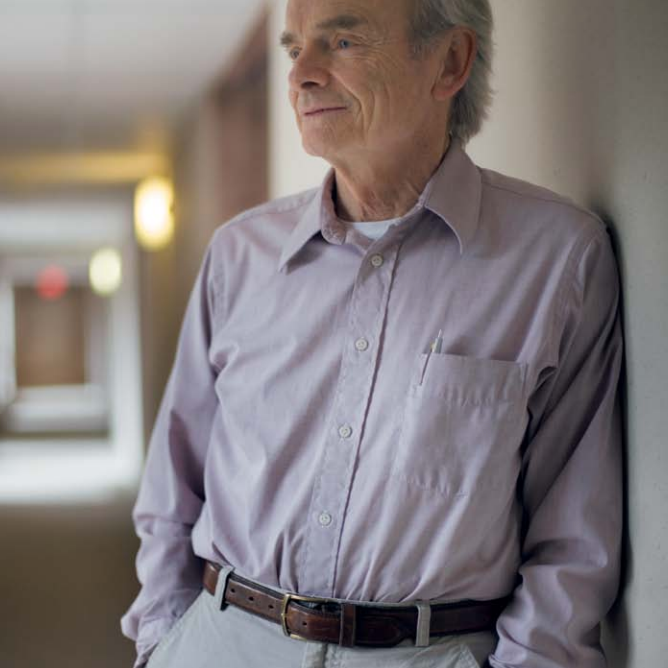Dr. Iwamura’s Approach to Health Development and His Inspiration for Management Sciences for Health
Dr. Iwamura’s Approach to Health Development and His Inspiration for Management Sciences for Health
by MSH Founder, Dr. Ron O’Connor

This piece was written by MSH Founder, Dr. Ron O’Connor in memory of his friend and inspiration, Dr. Noboru Iwamura.
Noboru Iwamura was dug out of the rubble of a concrete building less than a mile from ground zero three days after the bombing of Hiroshima, the only survivor of his high-school class. After several years’ recovery from the effects of radiation, he became committed to making a contribution to peaceful development in Asia. He completed his medical training and began to focus on health issues in less-advantaged countries.
By chance, Dr. Iwamura’s arrival in rural Nepal in 1962 coincided with my first summer’s work during medical school. Coming from an advantaged society, I had my eyes opened by seeing how Dr. Iwamura approached work in communities that faced very basic health problems along with real resource limitations.
Beyond being a competent physician, Dr. Iwamura brought an approach that I had not seen before—a blend of qualities that I could see were important for effective development work. First, he treated everyone with respect and courtesy, no matter what their situation, from the least fortunate to the most privileged. He also took his work very seriously but he never took himself too seriously. He was warm, modest, and humorous, making everyone feel at ease. He also saw that creating sustainable changes would require much more than medical care; it meant engaging communities actively with their own health needs. He saw beyond the immediate need for curative care to the larger picture of preventive medicine and community health promotion.
I went back to medical school, convinced that his example provided one practical way to help meet basic health needs in the developing world. I could see that greater impact was possible by combining technical competence focused on important health issues with the values which he lived every day: respect for others, humility, a sense of humor, and a commitment to helping communities and local organizations succeed for themselves.
Public health and preventive medicine were not yet taken very seriously at my medical school, and after my training it took some time to find a way to make a contribution. Dr. Iwamura’s example had shown me that the greatest tragedies were the avoidable ones. The greatest gap lay not in a lack of knowledge about how to solve the problems, but more often in the failure to apply solutions that had proven affordable and sustainable. Solutions such as family planning, immunization, and treatment of diarrhea and respiratory diseases could help the women and children who were dying unnecessarily at many times the rates of those in advantaged countries.
The importance of these lessons at the community level had been demonstrated to me by Dr. Iwamura in Nepal and in other local settings by Carl Taylor and other pioneers in public health. The next challenge was that solutions were needed on a very large scale, to help many communities, organizations, and governments to deal effectively with the massive needs in many developing countries. Management skills and techniques were needed to expand Dr. Iwamura’s approach to health services to districts, regions, and nations.
At that time, governmental and international agencies and academic institutions were not focused on practical management support for public health in developing countries; there were no organizations committed to bringing modern management experience to bear on health. This lack of an institutional base for management support led to the establishment of Management Sciences for Health (MSH) as a nongovernmental organization, with the mission of working with local leaders to help them narrow the gap between what is known and what is done to solve practical public health problems.
MSH began in 1971 with a focus on reproductive health because, at that time, family planning was a major concern for many countries where families were having more children than they wanted, due simply to the lack of choice and availability of basic contraceptive services. MSH’s first work with the Korean Ministry of Health quickly spread to other countries and into other technical areas, such as pharmaceutical management, information systems, maternal and child health, and health financing, and the work continues to evolve today. The mission of MSH is based on Dr. Iwamura’s concern that communities be challenged to take charge of their own health and empowered with the knowledge of workable and affordable solutions to basic health problems.
MSH continues to build on Dr. Iwamura’s inspiration, with a staff of nearly 1,000, working in more than 65 countries. Today the challenge is to recognize that sustainable health improvements for communities in developing countries can be rooted only in their own long-term commitments and that, in turn, technical assistance such as MSH provides must come increasingly through local sources rather than through “outsiders.” While the most pressing health issues will evolve, MSH can best contribute by continuing to build on the values that Dr. Iwamura exemplified and which generations have reinforced, as evident in the poem that Dr. Iwamura learned from one of his teachers, Dr. James Yen:
Go to the people Live with them Love them Learn from them Start with what they have Build on what they know.
But of the best leaders When their task is accomplished Their work is done The people will all remark We have done it ourselves.